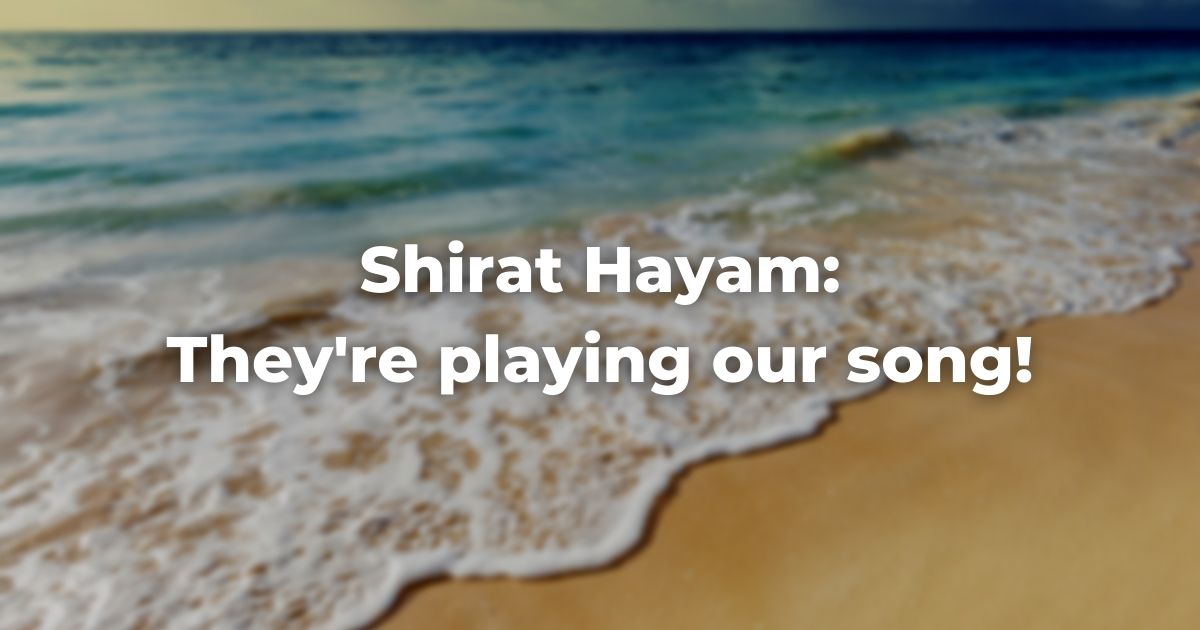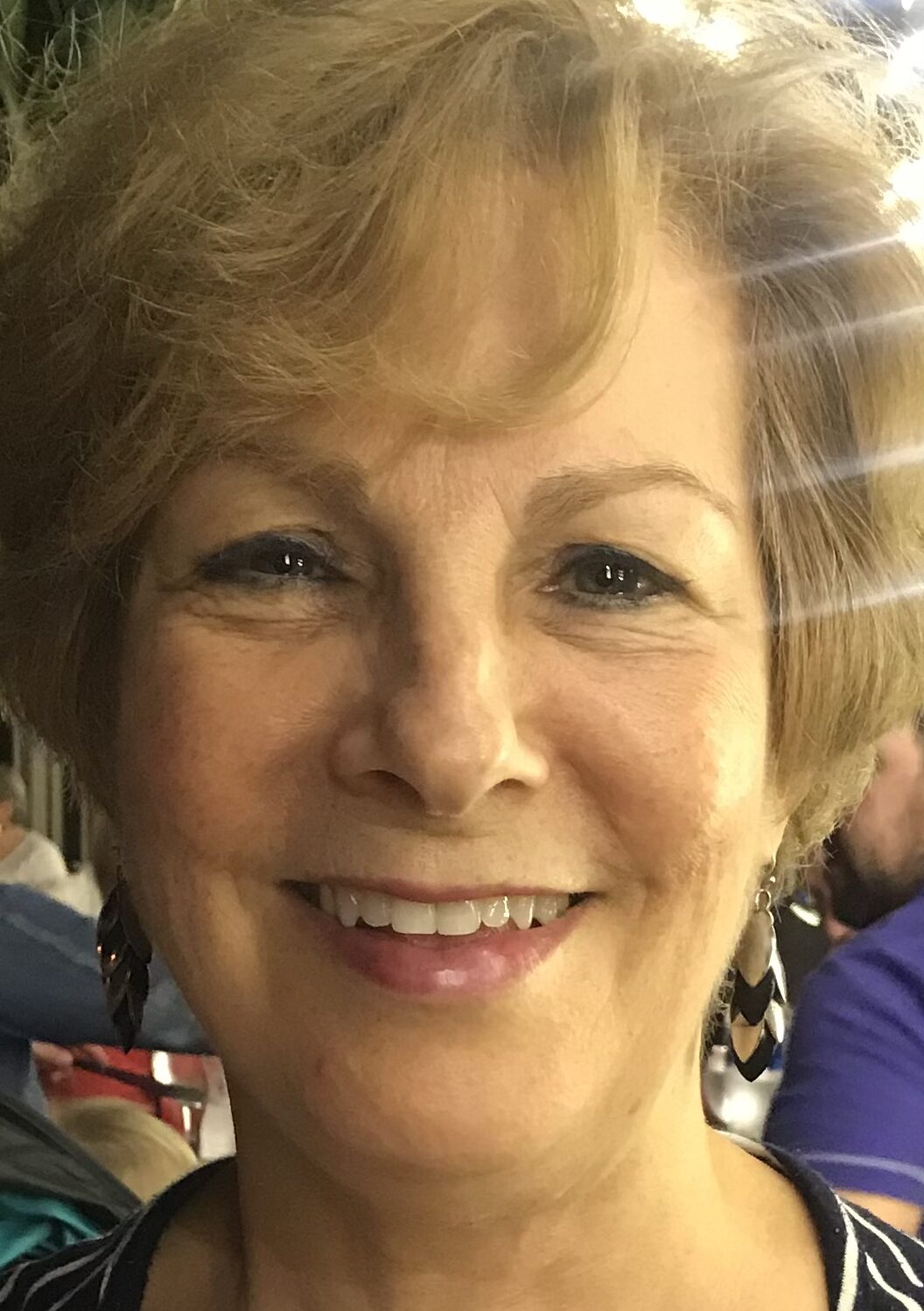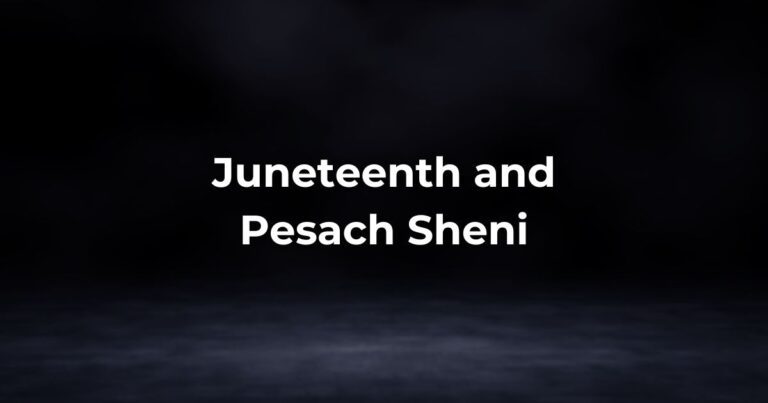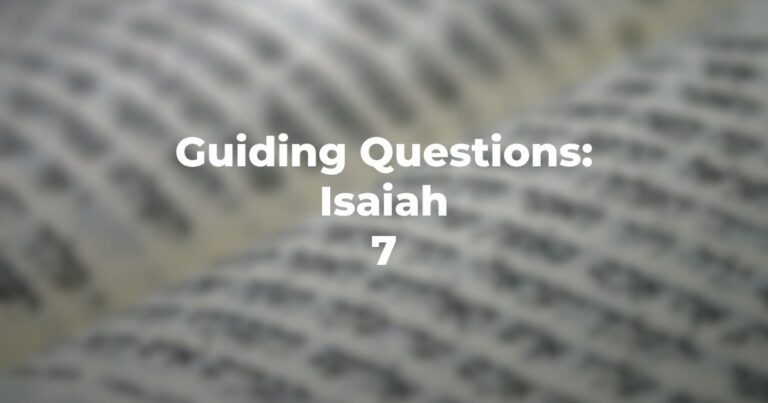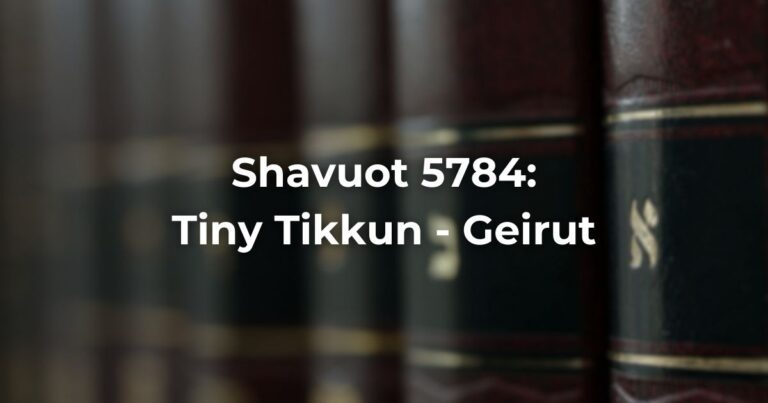A couple went out to dinner and were enjoying conversation when unexpectedly the background music caught their attention. “Honey, listen. They’re playing our song!” Hearing the music, they were instantly transported to a time and place embedded in their memory. They could sense the setting; they could feel the feeling; they could recollect the circumstances of this shared experience.
On Shabbat Shirah, they’re playing our song.
The Song of the Sea, sung by Moses and the children of Israel, is embedded in our collective memory. At about 3000 years old, The Song of the Sea is more than a golden oldie. We recite snippets from the Song numerous times in our everyday prayers, borrowing certain words, phrases, and images that allude to the setting, touch on the feeling, and refer to the circumstances of this significant TorahRefers to the first five books of the Hebrew Bible, the Tanakh, also called the Five Books of Moses, Pentateuch or the Hebrew equivalent, Humash. This is also called the Written Torah. The term may also refer to teachings that expound on Jewish tradition. Read more sedra.
Shirat Hayam—the Song of the Sea, as it is reverently called—is front and center in the synagogue. We honor it by standing while it’s chanted- a distinction reserved for just one other Torah reading, that of the Decalogue (the 10 Commandments).
We adorn it with a special melody. We enhance and prolong it with festive music throughout the Shabbat. Most tellingly, it’s the only song in the Bible that has a Shabbat named for it!
The poetic ode of the splitting of sea is a biblical great, unequalled as a literary and linguistic work of art, unsurpassed in its grandeur and majesty, unmatched in its power of inspiration, and unmistakable in its influence on the Jewish experience.
That may sound like a big claim, but we can attest to its truth. That’s because they’re not just playing our song; it is we who are singing it, b’nai Yisrael, right alongside Moses. It says in the Torah, “Then Moses and the Israelites sang this song to the Lord.” In this shared experience, all who witnessed the miraculous parting of the sea burst out to sing the Song.
Standing at the shores of the sea, we sing of wondrous powers, glorious triumph, and G-d’s everlasting sovereignty. In the Talmudic tradition, even babies and the unborn inside the womb joined in this spontaneous song of praise and victory. Can you imagine singing amongst the throngs of 600,000, the vibration of song reverberating through our bodies, echoing in our minds, resounding in our souls?
Ours is an ancient song in an archaic language with primordial references. The militaristic conquering of adversaries in the sea by a more powerful god has mythical connections to ancient Near Eastern, Canaanite, and Mesopotamian folklore.
In those cultures, the victorious god builds himself a sumptuous palace on the heights of a mountain where he is enthroned for evermore by his adoring subjects. In the Shirah, the victorious G-d of Israel is called, “The Lord, the Warrior- Adonai is His name!” [“Adonai ish milchamah, Adonai sh’mo.”]
Recounting how Adonai overpowered the enemy in the seas, we chant, “You made Your wind blow, the sea covered them; They sank like lead in the majestic waters.”
Having vanquished the enemy, Adonai brings the people to His sacred abode on the mountain top. “You will bring them and plant them in Your own mountain, the place you made to dwell in, O Lord, the sanctuary, O Lord, which Your hands established.”
And here’s where the mutual myth is transformed into an enduring religious ideology of the Jewish people.
We sing these verses of exaltation, “Mi chamocha baeilim Adonai, mi kamocha neder bakodesh. Nora t’hilot oseh fele.” “Who is like You, O Lord, among the celestials; who is like You, majestic in holiness, awesome in splendor, working wonders!” Now supreme over all other gods, Adonai’s kingdom is distinguished by more than military prowess and the mastery of natural forces. This is an invincible ruler before whom the nations are silenced and gripped with trembling, agony, terror, and dread. This is an absolute ruler who fights out of love for the people He redeemed and guides them to the holy abode where they will settle amidst the Lord’s holy presence.
This is the first defining episode in Judaism that proclaims and establishes Adonai as “Melech” (ruler) of Israel for now and for all time. “Adonai yimloch l’olam va’ed.” (The Lord will reign for ever and ever.) That iconic phrase (and variations of it) appear throughout our liturgy and are all direct references to this moment, the inauguration of G-d’s monarchy in the Song of the Sea.
Wherever you encounter these words and this concept in our prayers, it connects us to this collective memory when we first sang them. It is the proof-text that enlarges, extends, and authenticates the meaning of the prayer.
Just as hearing a couple’s own special song jogs specific memories and feelings, we recite these words and we are back at the Sea of Reeds again. And so, each generation stands as a living testimony to this epic event.
The singing of Shirat Hayam triggers images that attach us emotionally and historically to this original Jewish experience. The verses of Shirah have become the religious legends of our own time, preserved in prayer and repeated and recreated with each recitation. Their song is our song; and may its legacy, memory, impact, and sanctity continue to inspire us for another 3000 years.
Author
-

Cantor Sharon Citrin Goldstein has expressed her creative passions as an educator, entrepreneur, and synagogue leader. For nearly two decades, she directed the Anti-Defamation League’s antisemitism programs in Connecticut empowering students and adults to confront the world’s longest hatred. Her stories on family and ancestry have been published by Moment Magazine, Jewishgen.org, Ancestor Strong, Immigrant Dreams, and Tell Your Story Challenge of West Palm Beach where she was a short-story finalist. Her book about an untold hero of the Treblinka death camp revolt will be released in 2024. Sharon enjoys endless summers between Florida and Connecticut with her husband Paul.
View all posts

